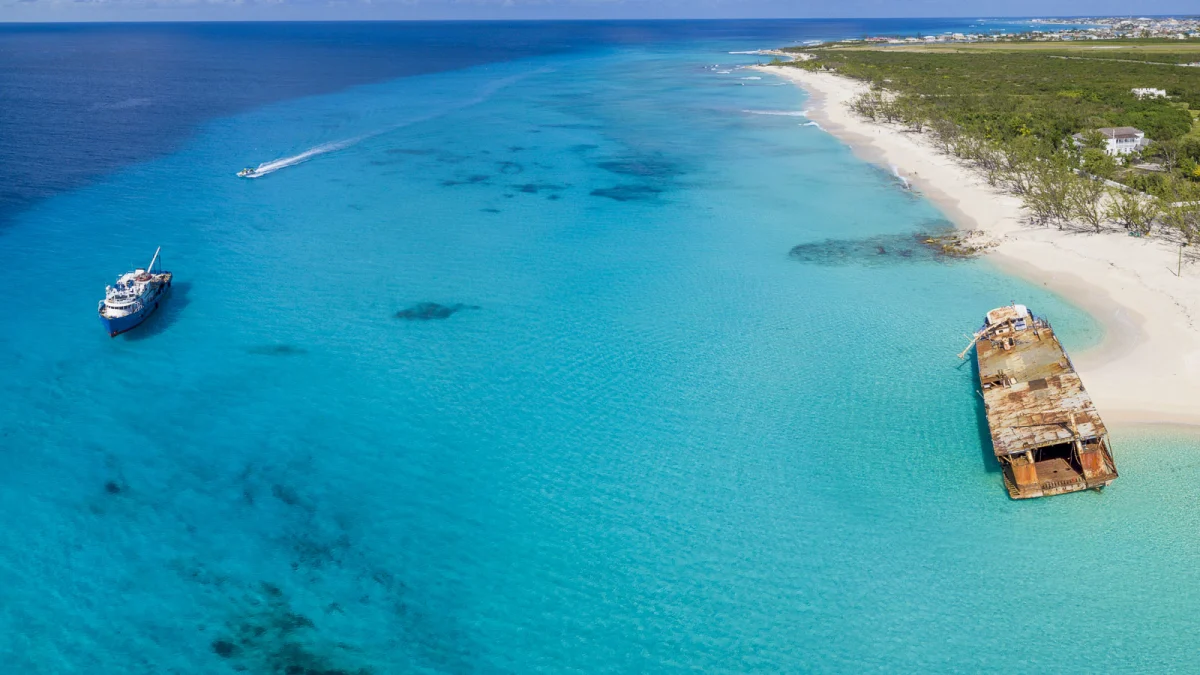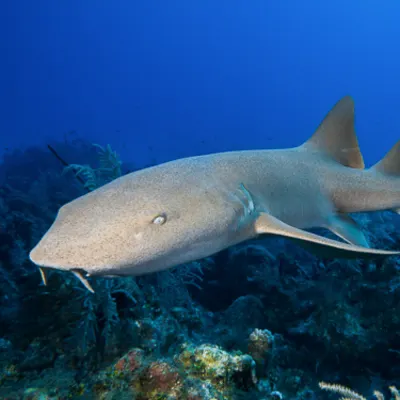
Scuba diving in
Turks and CaicosDiving Highlights
- Incredible reef and wall diving with sites suitable for all skill levels
- Encounters with nurse, lemon and reef sharks, and migrating whales
- Kilometres of wild Caribbean coast waiting to be explored
- Idyllic tropical island vibes, without the huge resorts and tourist crowds
Due north of Haiti and the Dominican Republic, the Turks and Caicos boast a unique Caribbean culture and identity, with each island home to its own distinct vibe. Split in two by the Turks Islands Passage, this archipelago is home to two separate halves - the Turks Islands and the Caicos. There are over 40 islands in the chain, but only eight are inhabited - leaving the rest in the hands of dramatic and unspoilt nature.
From the lovely seaside resorts and beaches of Providenciales - or Provo as it is popularly known - to the untamed wilderness of South Caicos, there’s plenty to see and do here for divers and non-divers alike. Explore limestone caves and crumbling colonial ruins, and wander the backstreets of colourful Caribbean towns. Or simply lounge around and take in the postcard-perfect views with deserted beaches and wild wetlands dominating the landscape.
The Turks and Caicos’ unique underwater scenery - with both shallow banks and a deep ocean trench - helps to explain its diverse and abundant wildlife. In addition to classic Caribbean attractions like healthy coral reefs and plummeting walls, Turks and Caicos diving is famous for its shark encounters - with no bait boxes or hand-feeding. Visitors here can witness the seasonal aggregation of nurse sharks at French Cay, lemon sharks and Caribbean reef sharks cruising past on nearly every dive, and migratory humpback whales headed to the Dominican Republic’s Silver Bank between December and March.
Top Turks and Caicos experiences

Encounter French Cay's nurse sharks
Swim, snorkel, and scuba dive alongside these docile bottom feeders as they gather en masse to mate. Dozens of sharks can be spotted at a time during this annual event.

Search for migratory humpback whales
Each year, humpback whales migrate through this region as they head to their seasonal mating and calving grounds. Whale watching and even snorkelling with these impressive animals is permitted off Salt Cay.

Explore plummeting walls
This islands’ world-class wall diving features plunging drop-offs and excellent visibility. Plus, up-close encounters with turtles, eagle rays, and sharks, as well as fascinating giant elephant ear sponges.

Drift amidst beautiful coral gardens
Grace Bay offers some of the best scuba diving in Turks and Caicos with reefs, sand channels and chutes, grottos, and deep walls - the perfect place to enjoy laid-back reef diving.

Cruise the Sandbore Channel
This deep channel between Providenciales and West Caicos is a superhighway for marine life, including pelagic sharks and rays. Be sure to keep an eye on the reef’s edge, as you never know what might pass by!
Turks and Caicos diving seasons and weather
The Turks and Caicos enjoy an arid tropical climate with warm days, clear skies, and less humidity than the southern Caribbean. You can expect sunny afternoons and daytime temperatures between 29 and 32°C, with a slight dip during the mild winter. Between November and April, overnight temperatures can drop to 23°C and occasionally below, but the days remain warm and sunny. Then, from June to October, the rainy season brings warmer temperatures and a few days of precipitation per month.
The visibility is great all year round, with 25 to 30 metres on most days. Water temperatures fluctuate slightly by month, with lows of 26°C in January and highs of 30°C in August.
This region can also be impacted by hurricanes and tropical storms between June and November, with a peak in storm risk during August and September.




